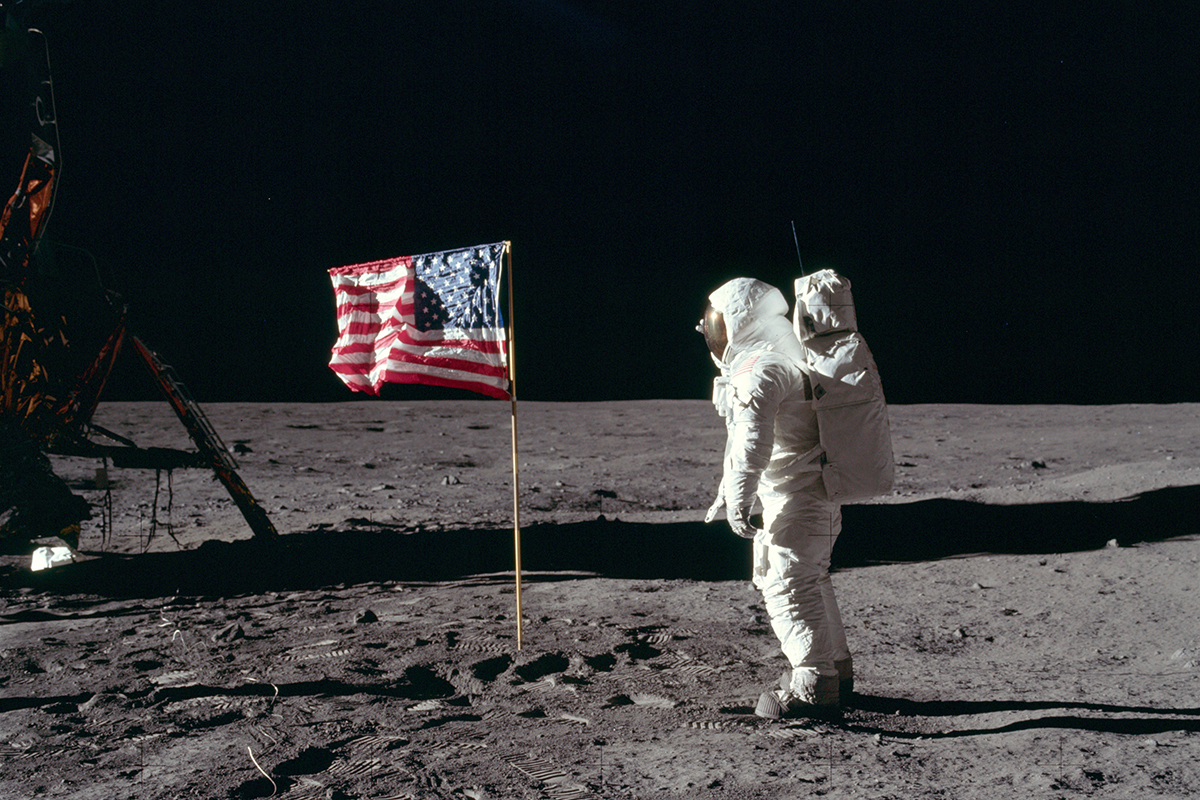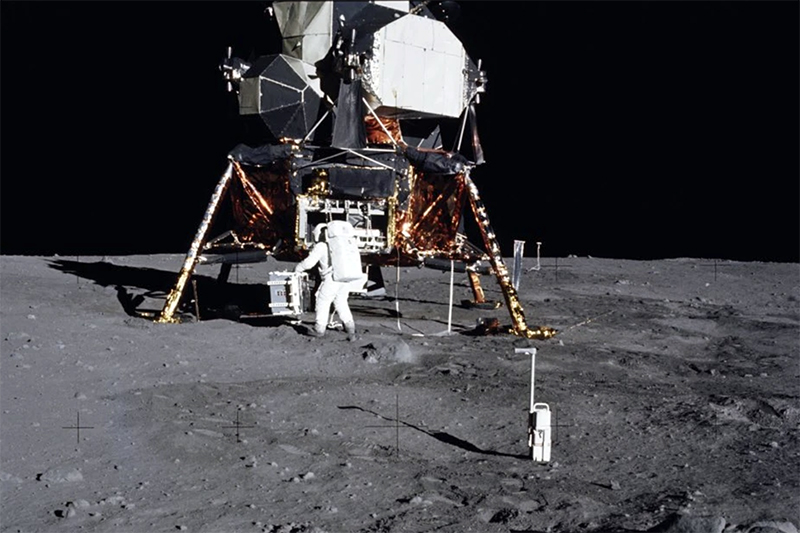Stars that are not seen?
Fake: «Maria Blyzinsky, an astronomer at the Greenwich Observatory, says that on the Moon, in the absence of an atmosphere, the stars are fully visible (…) but here none can be seen (…) the shadows are very clear, allowing details of the astronaut to be seen and even a US insignia on the side of the LM».
TRUE: María Blyzinsky is not an astronomer nor did she give those statements; She was a curator at the Greenwich Museum, in the astronomy section. No stars are seen because their brightness is so weak that typical speeds in photography cannot record them, unless they have long exposures (160ASA film was used at 1/250 s, so as not to saturate the photos due to sunlight).
Anyone on Earth can see this: if you try to take a photo of the starry sky with a conventional or digital camera, without long exposure, you will only see a black landscape without stars; the US insignia is visible because of the "reflection" effect explained in the previous photo by Buzz Aldrin.


Landing crater?
Fake: "When the Lunar Module landed on the Moon, it did not produce a crater between its legs, despite the large amount of dust it must have raised on its descent."
TRUE: On Earth, air causes a noticeable effect when a jet of pressurized gas is ejected, for example, as when a space shuttle is taking off; On the Moon, without an atmosphere, the dispersion is much more abundant and rapid, and its effect is less obvious. In reality, a lot of dust was dispersed, which was noticed by the astronauts when they verified that the terrain where they had landed was different from the surrounding terrain; The dust had lifted and revealed a second layer of material beneath the Lunar Module.
Why does the flag 'flame'?
Fake: "Why is the American flag flying if there is no air on the moon?"
TRUE: When placing the flag, the astronauts moved the flagpole a little so they could bury it in the ground; This movement, added to the wrinkles typical of the trip, gives the impression that the flag is fluttering; When the astronauts stop moving and touching it, the flag stays still, just as it should on the Moon.





